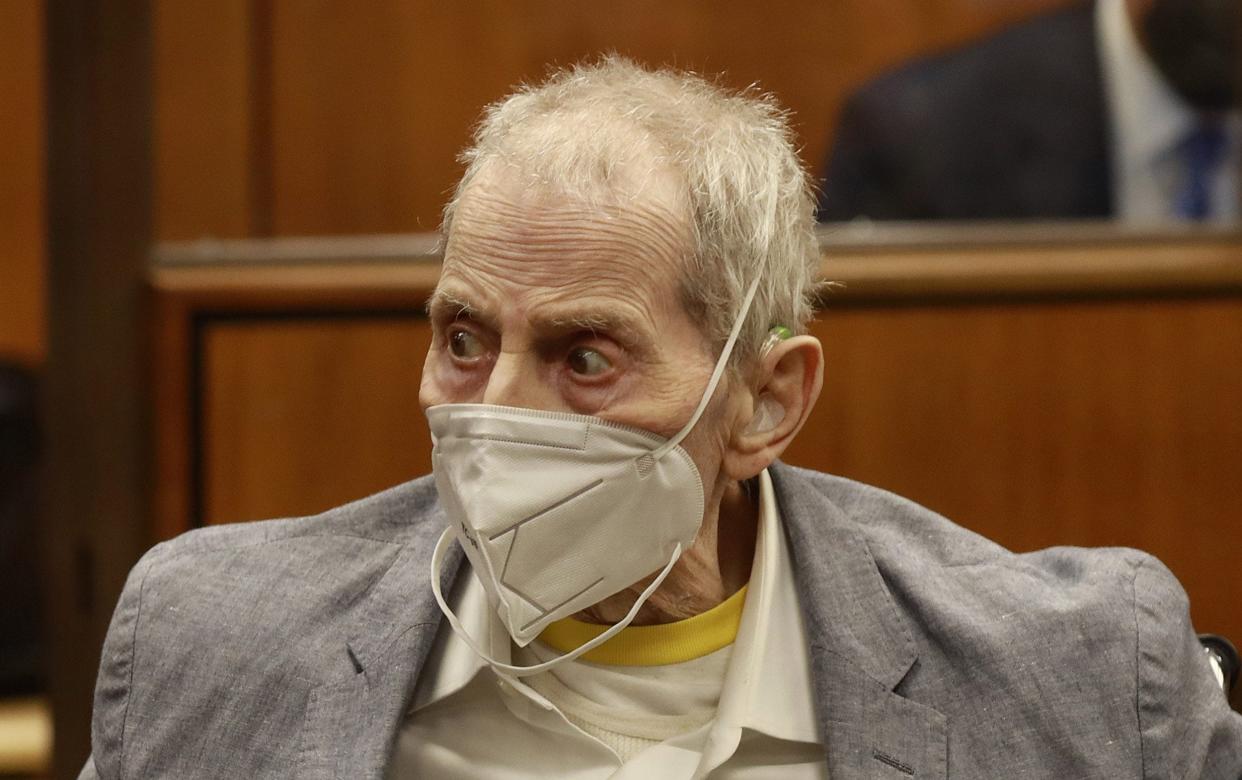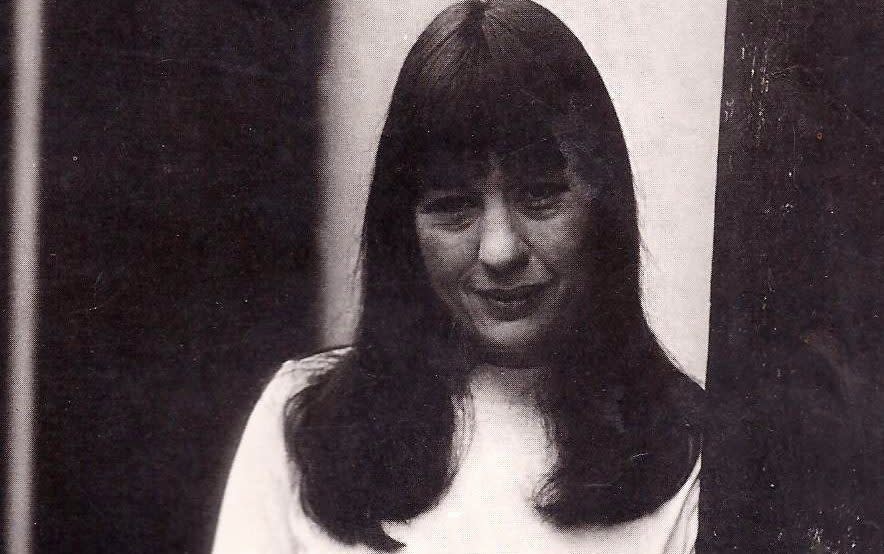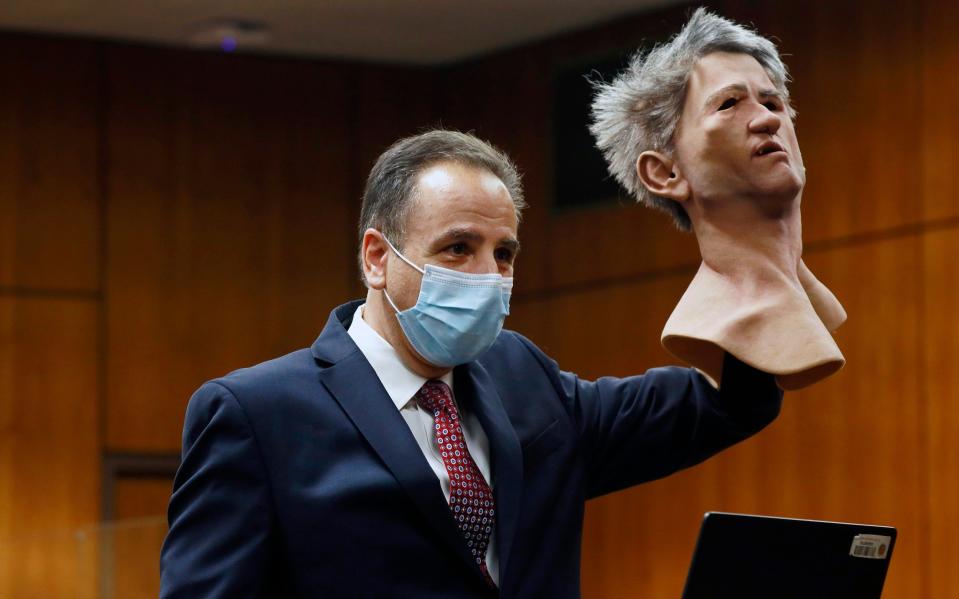'I killed them all, of course': US tycoon guilty of murdering woman who helped cover up wife's death

Justice has finally caught up with Robert Durst, a New York real estate scion who spent half a lifetime seeking to explain away a string of shocking deaths, after he was convicted of the murder of his best friend.
Durst, 78, was found guilty of killing Susan Berman, who was shot at point-blank range in the back of the head in her Beverly Hills home in December 2000 as she was prepared to tell police how she helped cover up his wife's disappearance.
A Los Angeles jury found Durst ambushed Ms Berman and killed her because she was a witness to a crime, which prosecutors said was the suspected murder of Durst’s wife Kathie Durst, who has never been found.
Ms Berman, the 55-year-old daughter of a Las Vegas mobster, was Durst's longtime confidante who, at the time of her death, was prepared to tell police she provided a phony alibi for him after his wife vanished.
"He killed his wife and then he had to keep killing to cover it up," lead prosecutor John Lewin told the court.
Durst, who is now frail and in a wheelchair, was convicted of first-degree murder and faces a life sentence with no option for parole.
Durst’s life story has been fodder for New York tabloids since his wife vanished without explanation in 1982. The intervening years have provided so many plot twists, Hollywood directors decided to make a documentary about Durst, which the multi-millionaire agreed to appear in.

While filming "The Jinx: The Life and Deaths of Robert Durst," Durst was confronted with incriminating evidence over his wife’s death and made what prosecutors said was a startling confession.
Durst could be heard muttering to himself on a live microphone while alone in a bathroom during a filming break: “What the hell did I do? Killed them all, of course. There it is. You're caught."
The shocking TV moment saw the HBO series propelled to instant success and brought fresh scrutiny on the unsolved case.
Durst, whose family owns many iconic buildings in Manhattan and is worth an estimated $100m (£72m), was arrested in 2015 while hiding out in a New Orleans hotel on the eve of the airing of the final episode.
He had been on the run for months, disguised as a mute woman in Texas and staying under an alias at a New Orleans hotel with a shoulders-to-head latex mask for a presumed getaway. He jumped bail in Texas and was arrested after shoplifting a chicken sandwich in Pennsylvania, despite having $37,000 in cash - along with two handguns - in his rental car.
Although Durst was charged only with killing Ms Berman, the prosecution contended that her death was connected to the mysterious disappearance of Kathie and the killing of a drifter he had befriended in 2001.
Durst was acquitted in 2003 of killing Morris Black, who lived across the hall from him in a rooming house in Galveston, Texas, where Durst was hiding from the authorities.

Durst took the stand in his defense during the sensational trial in LA County Superior Court. He denied killing Ms Berman, saying he was on the US East Coast at the time and that he later arrived to find her on the floor of her bedroom.
Durst's decision to testify in his own defense backfired as he was forced to admit lying under oath, made damning admissions and had his credibility destroyed when questioned for nine days by Mr Lewin.
"There has never been a defendant that I'm aware of that has perjured himself so many times about so many different things in such a short period of time," he said. "It was absolutely shocking."
Prosecutors painted a portrait of a rich narcissist who did not think the laws applied to him and ruthlessly disposed of people who stood in his way.
Meanwhile, the defence depicted him as a hapless, socially awkward man who “doesn’t make good decisions,” and ended up in the wrong place at the wrong time and ran, twice.
His lawyers claimed he was the victim of deceptive filmmakers.
Prosecutors credited directors Andrew Jarecki and Marc Smerling with bringing fresh attention to the case.
"Without them having conducted the interviews we wouldn't be where we are," Mr Lewin said. "That was the starting point, no question."

 Yahoo News
Yahoo News 
